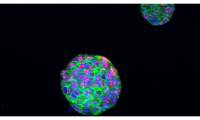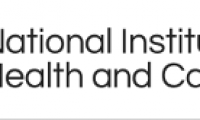-
How Digitizing Data Collection and Analysis in Biopharma Can Drive Better, Faster Insights
- Source: drugdu
- 167
- February 21, 2024
-
Innovate UK grants funds for breast cancer therapy project
- Source: https://www.pharmaceutical-technology.com/news/innovate-uk-funds-breast-cancer/?cf-view
- 105
- February 14, 2024
-
MRC Laboratory of Medical Sciences worth £120m opens on ICL campus
- Source: https://pharmatimes.com/news/mrc-laboratory-of-medical-sciences-worth-120m-opens-on-icl-campus/
- 103
- February 14, 2024
-
Study reveals AI can predict patients’ survival in glioblastoma
- Source: https://pharmat.com/news/study-reveals-ai-can-predict-patients-survival-in-glioblastoma/
- 99
- February 12, 2024
-
First of Its Kind Software Uses AI and ML for Personalized Disease Prediction
- Source: drugdu
- 93
- January 27, 2024
-
Key Trends from the 2024 J.P. Morgan Healthcare Conference
- Source: drugdu
- 90
- January 27, 2024
-
NICE recommends two AI-powered software tools for stroke diagnosis in NHS
- Source: drugdu
- 86
- January 27, 2024
-
AI Leverages Tumor Genetics to Predict Patient Response to Chemotherapy
- Source: drugdu
- 87
- January 25, 2024
-
China is a Key Pillar for Novartis
- Source: drugdu
- 188
- January 19, 2024
-
MHRA sets out regulatory roadmap to support safe access to medical technology
- Source: drugdu
- 96
- January 12, 2024
your submission has already been received.
OK
Subscribe
Please enter a valid Email address!
Submit
The most relevant industry news & insight will be sent to you every two weeks.













